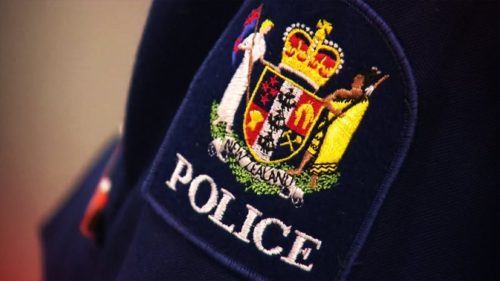
A coroner has ruled a former local police officer who took his own life was facing multiple stressors at the time which culminated in him crashing his vehicle while intoxicated.
The name of the officer and the other people identified in the recent ruling from coroner Marcus Elliot are suppressed.
The officer died in 2018 with an inquest into the circumstances being held in April this year.
Coroner Elliot found the man had experienced difficulties in his relationship with his wife in the years prior to his death.
In late 2017 he talked to a senior officer in his district and was referred to the police’s wellness service.
He also had a number of counselling sessions between late 2017 and early 2018.
He and his partner separated in February 2018 and he moved out of the family home.
Coroner Elliot found the breakdown of the officer’s relationship, the impact of that on his access to his children, and the “potential financial implications of the separation” were stressors in the man’s life.
The officer saw a doctor and was prescribed medication to help him sleep.
In April 2018 his ex-partner became concerned he would take his own life and informed police, who told the police’s wellness service. A senior police officer was also notified of the concerns.
In May 2018 the man’s ex-partner applied for a protection order against him, which was granted and served on him.
He had several sessions with a psychologist between May and June 2018.
In May 2018 his ex-partner again expressed concerns about his mental health to police and said she feared he would commit suicide and potentially kill their children also.
The police’s wellness service spoke to the officer again and carried out a risk assessment.
In June 2018 the psychologist the officer was seeing cleared him as fit to return to full duties.
The same month, his ex-partner made a criminal complaint to police alleging he’d been violent toward her and their children in 2016 and 2017.
Police opened criminal and disciplinary investigations into the allegations.
The officer was contacted by a senior officer in his district and told he was being stood down from duty for a month “while an assessment of the situation is made”.
That night he emailed his parents with “It’s time” in the subject line.
He wrote in the email that he had “nothing left” and “I just can’t do it anymore. I am so sorry”.
His parents contacted police. An officer who had a good working relationship with him located him at his home and spoke with him.
That same month his ex-partner again contacted police to express concerns about him.
The psychologist recommended not sending the officer back to work at that time. In late July 2018 he went on sick leave.
The coroner’s ruling states the officer declined to be interviewed in relation to the criminal complaint made against him by his ex-partner.
The outcome of the investigation into the complaint was a recommendation he be charged with assaulting his ex-partner, but he hadn’t been informed of that at the time of his death.
He had a final session with the psychologist in September 2018 in which he said he’d had contact with his children, which he was pleased about.
On the night of October 11, the officer crashed his vehicle after having consumed alcohol at a bar.
He left the crash scene on foot and returned home and phoned his parents, leaving a voicemail message saying he’d “done something stupid again”, crying, and asking them to phone him back.
A member of the public who heard the car crash phoned police on 111.
Several police officers arrived and visited the home of the crashed vehicle’s owner, their colleague.
They searched the house with assistance from the police’s Eagle helicopter, eventually finding their colleague’s body at the property.
“An ambulance was called,” coroner Elliot’s ruling states. “A paramedic subsequently pronounced [the officer] dead.”
Following his death, a forensic pathologist found the man had a blood alcohol level more than four times the legal limit.
The coroner ruled the officer had died by suicide, but while there were “a number of stressors” in his life leading up to his death, there was no evidence he was at acute risk of taking his own life prior to the night he died.
The criminal and disciplinary matters the officer was facing were unresolved at the time of his death.
“However, something happened that day which drastically changed his prospects: he crashed his car while driving with a blood alcohol level more than four times the legal limit”, the coroner’s ruling states.
“There was evidence at the inquest that, at that time, this would have led to the end of [the officer’s] career as a police officer. He would surely have assumed this to be the case.”
When coupled with the other stressors, his distress would have been “profound”.
The coroner found alcohol was also a factor in the tragic events of the night the officer died.
“At the time he was facing his most profound stressor, namely the certain end of his career and the consequences of this, [the officer] would have been less equipped to deal with it due to the effects of alcohol.
“[The officer] died because, after drinking an amount of alcohol which resulted in a blood alcohol level of 221mg/100mL, he crashed his car, thereby placing his career at risk.
“This transformed a difficult situation into what seemed, due to the effects of alcohol, to be an insurmountable one.”
- Where to get help:
Free call or text 1737 any time for support from a trained counsellor.
Lifeline – 0800 543 354 (0800 LIFELINE).
Youthline – 0800 376 633, free text 234 or email talk@youthline.co.nz or online chat.
Samaritans – 0800 726 666.
If it is an emergency and you feel like you or someone else is at risk, call 111.









